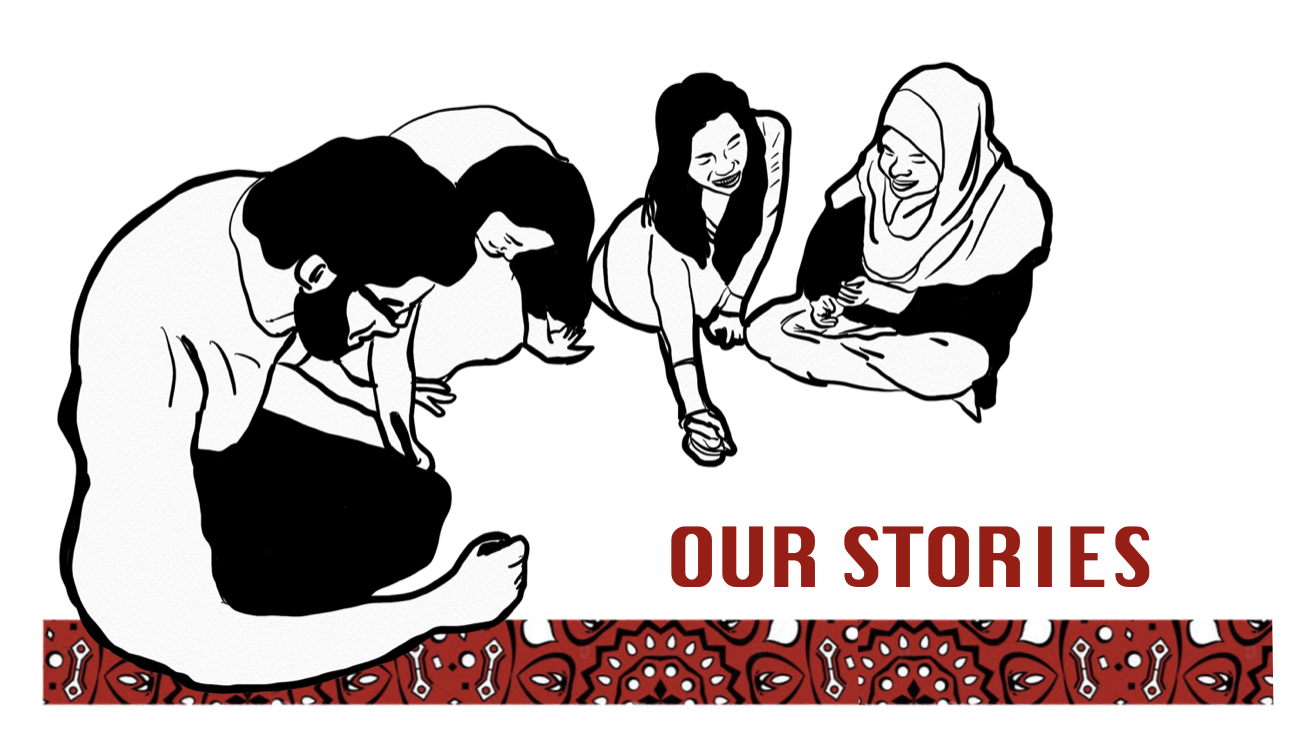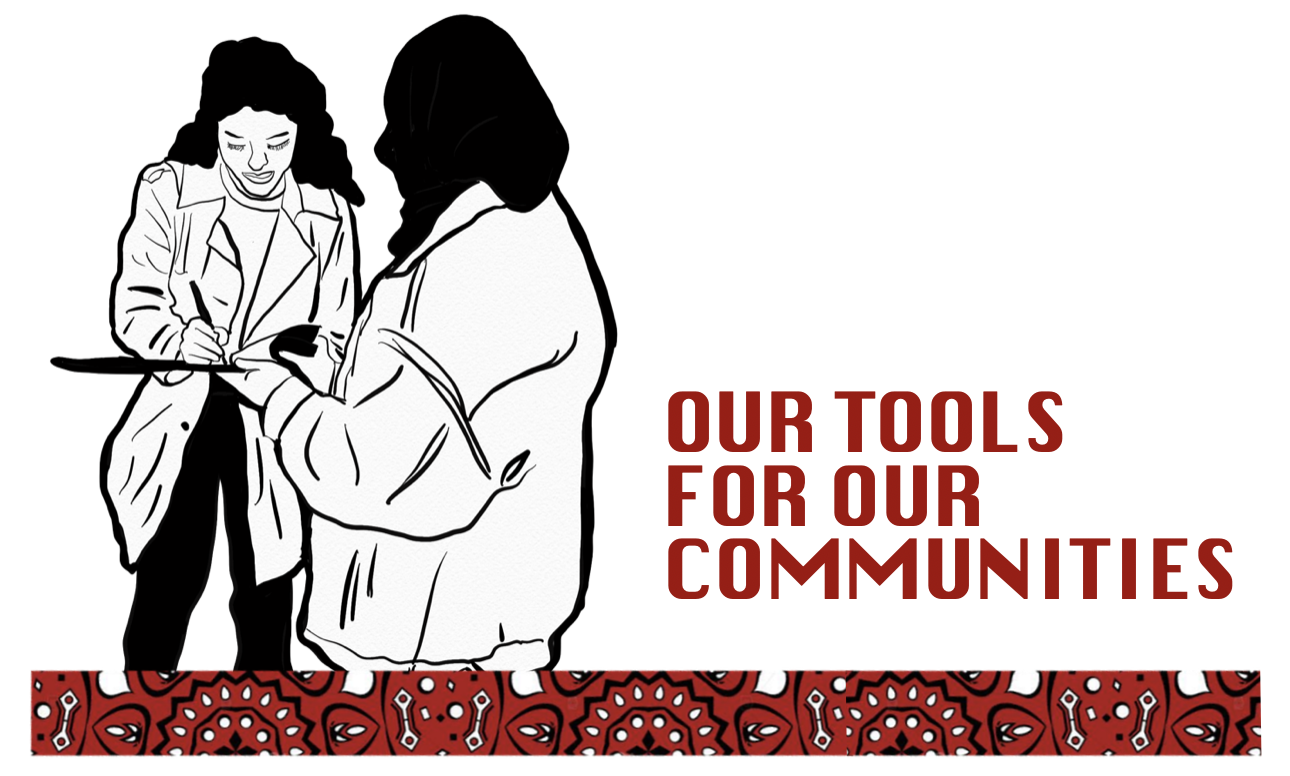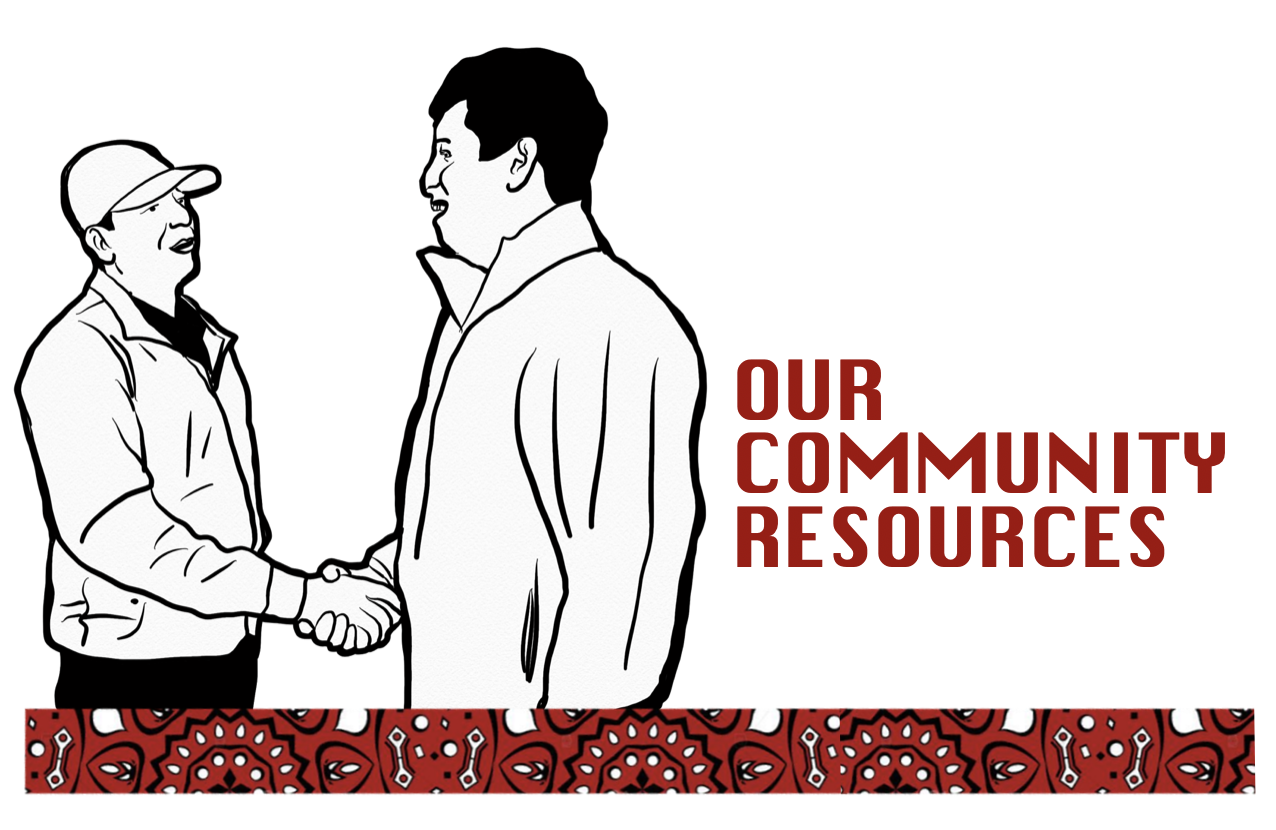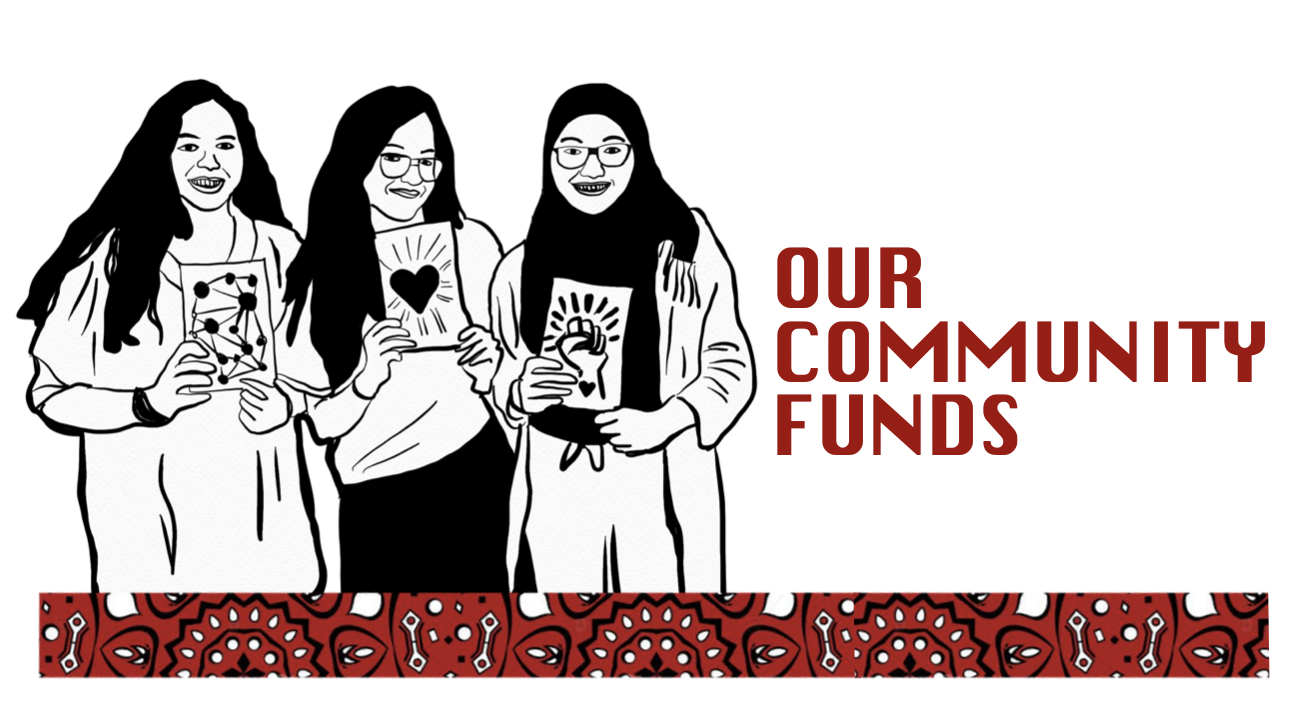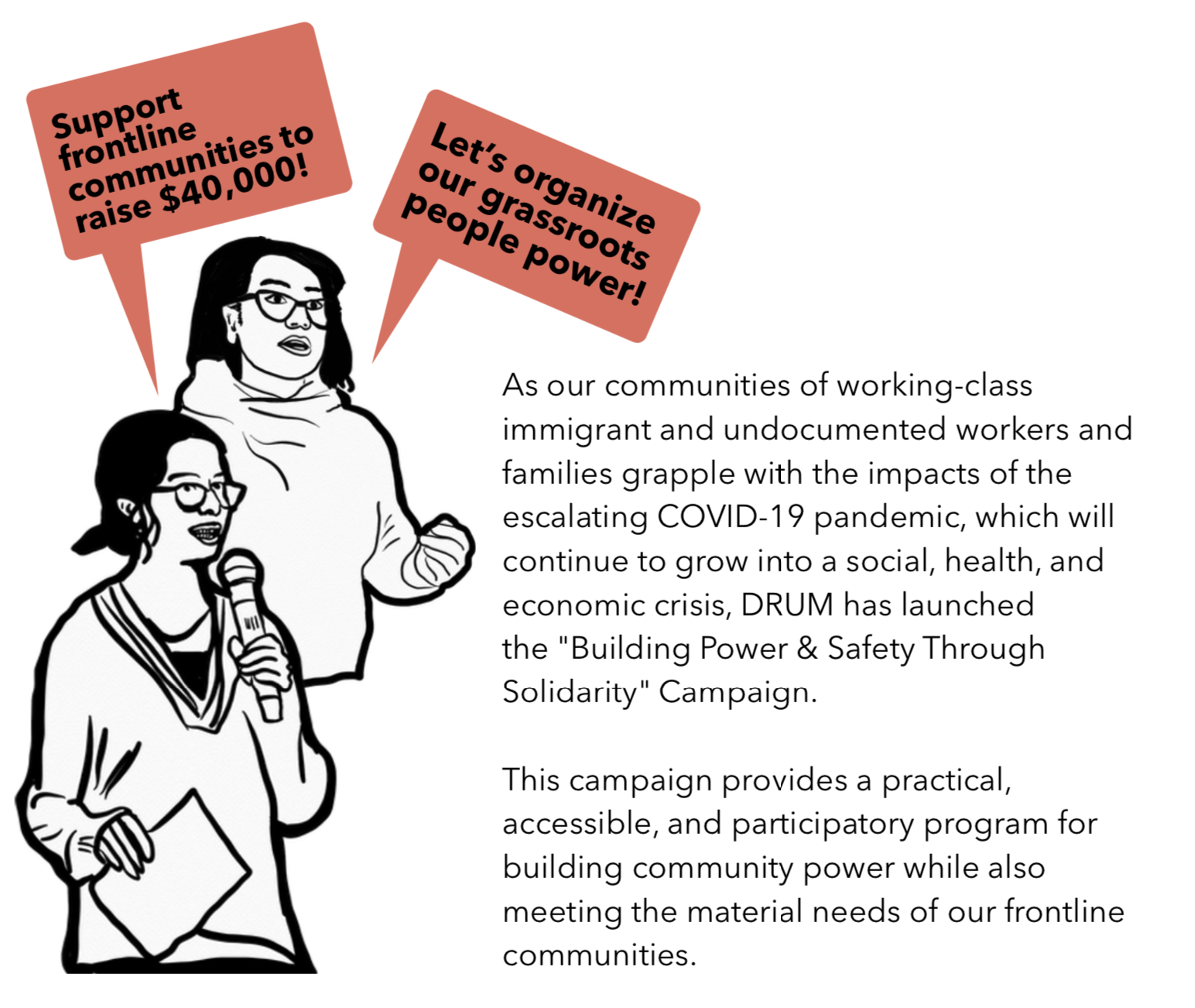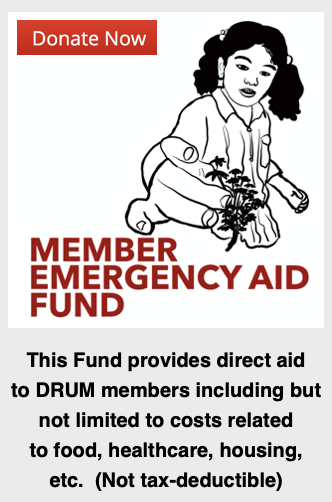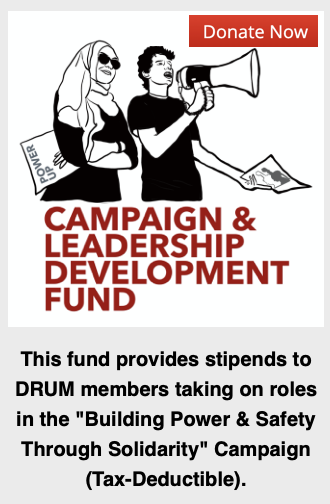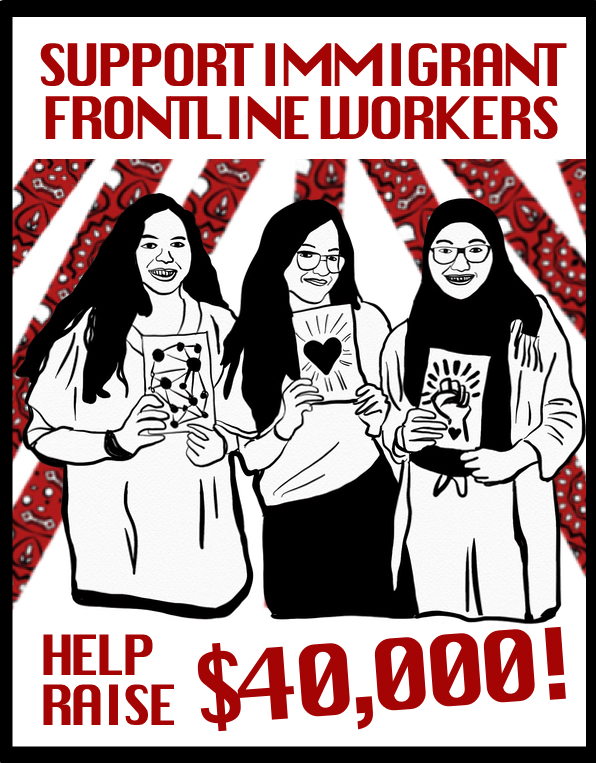
BACKGROUND
We are working class, immigrant, undocumented workers and families who are living in the epicenter of the COVID-19 pandemic and at the crossroads of global capitalism’s collapse. We live in New York City neighborhoods that are a battleground for survival -- in Elmhurst, Jackson Heights, Richmond Hill, Jamaica, Kensington, and Parkchester.
It is clear to us that our communities are on the frontlines of crises, under-resourced and targeted by policies of neglect and destruction. We are taking charge and organizing ourselves with our allies. We aim to come out in better conditions after this pandemic, creating a city and communities that value human dignity over profit.
We are offering what we have learned in hopes that other communities will find it useful. This is a working document that will continually be updated. We welcome feedback, recommendations and insights from other frontline communities.
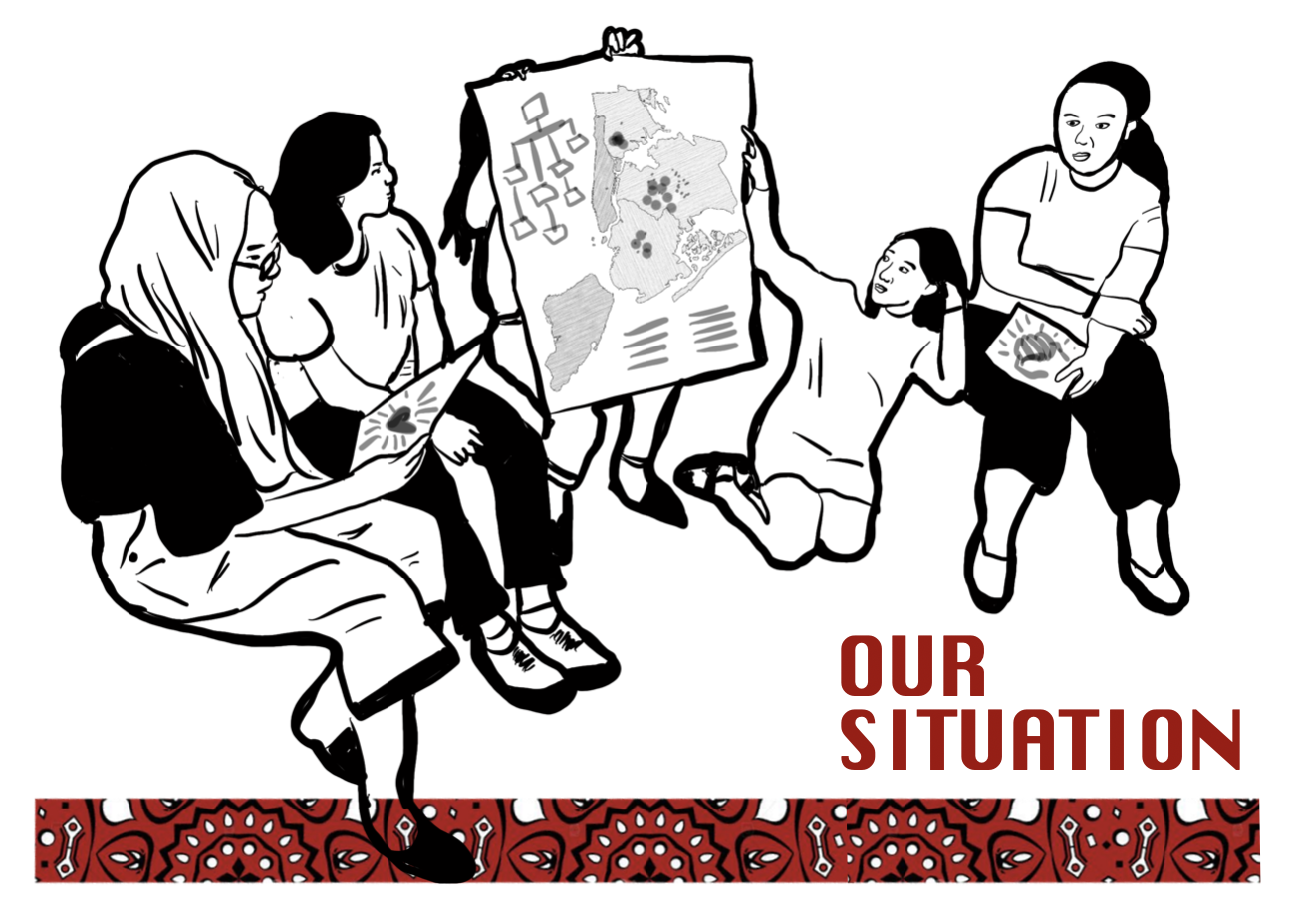
(Updated April 14)
Our communities face dire conditions with high numbers of COVID-19 cases confirmed and an alarming number of deaths. We got to this point because of the misleadership of our local, state and federal governments and the hollowness of American social and economic structures as a result of 40 years of austerity and neoliberalism.
Their failures to act decisively and capitalism’s success in driving the interest of profits over people has and will continue to cost us our families, siblings, parents, children, grandparents, friends and neighbors. The ongoing and escalating pandemic will continue to grow into a social, health, and economic crisis that is unprecedented in the last 100 years of American history. Our base of low-wage and undocumented workers (taxi drivers, home health aides, street vendors, restaurant, grocery, and domestic workers, among others) are presented with two dangerous choices:
- Be unemployed (with minimal savings, and unable to pay for food, rent, or to access benefits, etc), OR
- Continue to work (while putting ourselves and others at risk, with no safety or protection offered or available)
OUR PROBLEM
We are currently confronting three crises: health crisis, systemic crisis, and social crisis.
Health crisis: The richest country in the world does not have the needed medical supplies and capacities that are needed at this time, like masks, ventilators, medications, hospital beds, or robust public health education programs. This is because our governments have taken resources out of the public health system for years, and instead said that private corporations are the best way to meet our healthcare needs. There was no preparation for this pandemic in advance, or even as we knew it was coming, because the government didn't think it was it’s responsibility, and the corporations didn’t think it was profitable. As a consequence, our people are now dying.
Systemic crisis: The same dynamic of undercutting governmental responsibility and resources, and relying on private corporations and their profit margins, has also been used in our education, housing, employment, food, environmental, and every other system that makes up our lives and society. The weakness in our social fabric created as a result means that even a slight disruption in one of these areas leads to a collapse in the other areas. For example:
- NYC schools couldn’t be closed because 100,000 NYC students are homeless and could only get meals at school
- Workers cannot afford to stay home because they won’t be able to pay rent if they miss two paychecks, and so they continue to and are forced to show up to work, putting themselves and others at risk of sickness
- The state governments and federal government are all fighting each other over access to medical supplies and equipment
Our social and economic systems have such weakened foundations that even brief periods of slowdowns are so catastrophic that governmental officials and corporations will risk the well-being and lives of people and workers by resisting public health measures, shutdowns, or expanding social safety systems. They want to push to get back to work so that the rich can continue making their profits. And they try to misdirect us by focusing on calling all the frontline and essential workers “heroes”, rather than providing actual safety, equipment, benefits, and compensation for them.
Even the efforts to fix the damage, in the form of “economic stimulus” packages by the government, have further favored large corporations compared to just crumbs for the workers, small businesses, or the already unemployed, and completely excluded undocumented immigrants, cash economy workers, and others. So, poor and working people are dying or are unemployed, but our stock market is doing great. This is capitalism: Governments and systems that serve the rich, and punish the poor.
Social crisis: In response to the health and systemic crises, the social responses of many people indicates a deeply embedded culture of individualism and division. People have hoarded essential goods, even though if our neighbors don’t have essential items, it puts all of us at risk. There has been an increase in anti-Asian sentiment and violence that misdirects the blame for the crisis away from the responsible governments and corporations. From some, there are calls for the shutdowns to end and work to restart by claiming that it is only the elderly and sick who are really at risk, and thus are ‘expendable’. In contrast to these responses of fear and isolation, many people have also stepped up to take care of neighbors and each other, or come together to form direct aid groups. Will it be every person for themselves? Or will we recognize that the health, well-being, and dignity of each of us is interconnected, and that we can only be safe if our neighbors and communities are safe, next door, across street, behind prison walls, and across borders?
WHAT IS TO BE DONE
In response to the crisis, ideas that were previously impossible in American society, are now being considered to deal with the crisis (example: eviction moratoriums, universal basic income, rent cancellation, emergency provision of medical care for COVID-19, etc). At the same time, governmental proposals for relief at the federal, state and city levels overwhelmingly favor the rich and corporations, with minimal support for the working class, and with absolute exclusion of undocumented immigrants, despite our roles in much of the currently deemed “essential work” (agriculture, transport, delivery, food, sanitation, domestic, grocery, taxi, construction labor).
These kinds of crises are transformative of society and things will never return back to the way they were. But at this moment, the rich are working to increase their power even more. We as people and movements have to fight to ensure that we get to shape the direction of our society for decades to come. Collectively, our efforts have to intervene in the:
- health crisis to get immediate and wholistic support and care to our communities
- systemic crisis to restructure society in ways that serve human needs and development rather than profits
- social crisis to build relations and culture of solidarity and mutuality
This moment will require bold actions and demand. Some examples of those have been rent strikes, and calls for general strikes. But those actions need to have power behind them to be effective.
OUR PLAN
The ‘quarantining’ makes it impossible for us to have in person contact and meetings, which is the fundamental building block of our organizing work. At the same time, while quarantined, even people from our bases have time on their hand, are available, and accessible for conversations and engagement through phone, video, texts, and social media. Given peoples’ sense of isolation, their need for information, their need to do something, this is an opportunity to build power. Our communities are waiting.
Building Power & Safety Through Solidarity is a phone-based base-building campaign. Our members are engaging their contacts and other community members for the purposes of:
- Safety (provide health information, updates on ongoing developments, connections to resources)
- Power (agitation around the crises, recruitment, and organizing to take actions)
- Solidarity (building connections in a time of isolation, building new relations and culture, providing minor economic support for members and participants for carrying out campaign)

